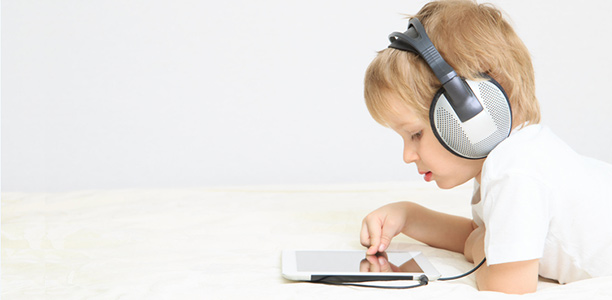This Hearing Awareness Week, Aussie start-up Sound Scouts and research partner, Macquarie University Centre for the Health Economy, is reminding Australian parents to be hearing-wise – and know what hearing screening options are available for children.
Currently there is no universal hearing screening program for children entering primary school, meaning many children enter school with hearing loss. These children, because of their condition, can be inattentive, easily-distracted and find listening to instructions difficult. As a result, children can be wrongly diagnosed with an attention disorder, leading to needless – and potentially dangerous – prescription medication use.
In the absence of a government-led universal screening program, Sound Scouts, which recently received significant research funds from NSW Health, is pioneering a very modern approach to hearing screening in children, as explains CEO and founder Carolyn Mee.
“Sound Scouts is designed as a fun game, where children focus on the story and respond to the sound cues in the game,” Ms Mee said.
“They don’t even know they’re being tested, that’s the beauty of it. You can download the app onto an iPad or Samsung tablet.”
Dr Henry Cutler, from the Macquarie University Centre for the Health Economy, who is currently evaluating Sound Scouts to determine the lifetime benefits of screening upon entering school, is keen to remind parents of the risks posed by childhood hearing conditions.
“While all newborns in Australia are tested for congenital hearing loss at birth through state and territory universal newborn hearing screening programs, some children will acquire hearing loss in their first five years of life,” said Dr Cutler.
“Many children entering primary school with undetected hearing loss could be prevented, through innovative apps such as Sound Scouts, if parents are made aware of potential hearing loss in children, and the availability of screening.”
Sound Scouts has been created through research and development conducted over the last five years in collaboration with the Australian Government’s National Acoustic Laboratories. The app tests for hearing loss and central auditory processing disorder in children from four years old, up to 12. Testing children for hearing loss could prevent negative lifetime impacts of hearing loss on future education, employment, and income.
Hearing loss is, unfortunately, over-represented among low income earners. International evidence has also found that children with hearing loss are twice as likely not to finish higher education.
However, as Dr. Cutler explains, the worst of the negative impacts of hearing loss can be mitigated through screening, management and parent support.
“Once diagnosed, children with permanent hearing loss can be managed through government-funded hearing care delivered through Australian Hearing, the Australian government’s hearing services program,” Dr. Cutler goes on to note.
“With support from their parents, children with hearing loss who begin early intervention have better developmental outcomes than similar children who begin intervention later in life. Hence the need to screen children early in their school life.”
Since going live in February 2016 over 3,000 children have played Sound Scouts.
“Preliminary results of the evaluation suggest 30% of parents were not aware of hearing loss in children before using Sound Scouts. While many children have passed the test, nearly 25% of children aged between four and 12 years old, were detected as having hearing loss expected to affect their spoken language and education performance,” said Ms Mee.
As well as the potential quality of life, academic and employment benefits to children living with hearing loss, the government may also benefit from this app.
State and territory governments could avoid the potential cost associated with additional education resources, while the Federal Government can expect to avoid income support payments due to lower lifetime employment prospects for these children once they grow up.
(Source: Macquarie University)










